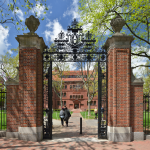Overindulging during holiday festivities can cause more than heartburn. You could end up in the emergency room. Prevention is the best course.
atrial fibrillation
Atrial fibrillation impacts two million Americans, putting them at risk for, among other things, strokes. A new study looks at how stress and anger can trigger atrial fibrillation and be treated with an old medication: beta-blockers. It turns out that yoga might work just as well.
Atrial fibrillation affects many Americans and it can result in debilitating strokes. Risk calculators help physicians identify those patients at risk for stroke. However, the calculation can be improved by remembering that risk isn't static, but instead a fluid factor.
Corporations aren’t all evil, and universities are not all saints. Most products are coming from industry work. Meanwhile, plenty of junk science comes from universities – and sometimes even from Boston's most prestigious academic institution.
A large study has shown that patients who develop a common arrhythmia post-operatively have a four-fold increased risk of ischemic stroke, the type caused by an arterial blockage. In these cases, the likely cause is a blood clot known as an embolus, which forms in the heart and moves to a cerebral artery.
Atrial fibrillation (A-fib), a common irregularity of the heartbeat (arrhythmia), has been shown to be a major cause of strokes. Now even silent strokes are linked to this condition. Blood thinning is a necessity to prevent them.
Atrial fibrillation (an irregular and often rapid heart rate resulting in poor blood flow) is the most common abnormal heart rhythm. According to the American Heart Association, AFib can lead to blood clots, stroke, heart failure, and other heart complications. Currently, an estimated 2.7 million Americans are affected by AFib. AFib can affect anyone, but typically people
A commonly-used heart drug, digoxin, has never passed a controlled-study test to see if it s both safe and effective for patients with atrial fibrillation. A large VA retrospective analysis shows that it may be even riskier than suspected: maybe time for it to go.
Two new studies show that sudden-onset strokes are often provoked by the relatively common heartbeat irregularity, atrial fibrillation. If short-term cardiac monitoring fails to detect it, 30-day testing is required. Anticoagulation can be lifesaving.
Atrial fibrillation (AF) prevalence is on the rise, increasing 13% over the last twenty years in the United States alone. Its incidence is expected to
A new review shows a link between consumption of an NSAID pain reliever and the arrhythmia, atrial fibrillation. Is it real, that is, causal? Stay tuned, it s not impossible.
News from the ongoing meeting of the American College of Cardiology: updated recommendations for treatment of atrial fibrillation, and a bit of good news for men on statin drugs



